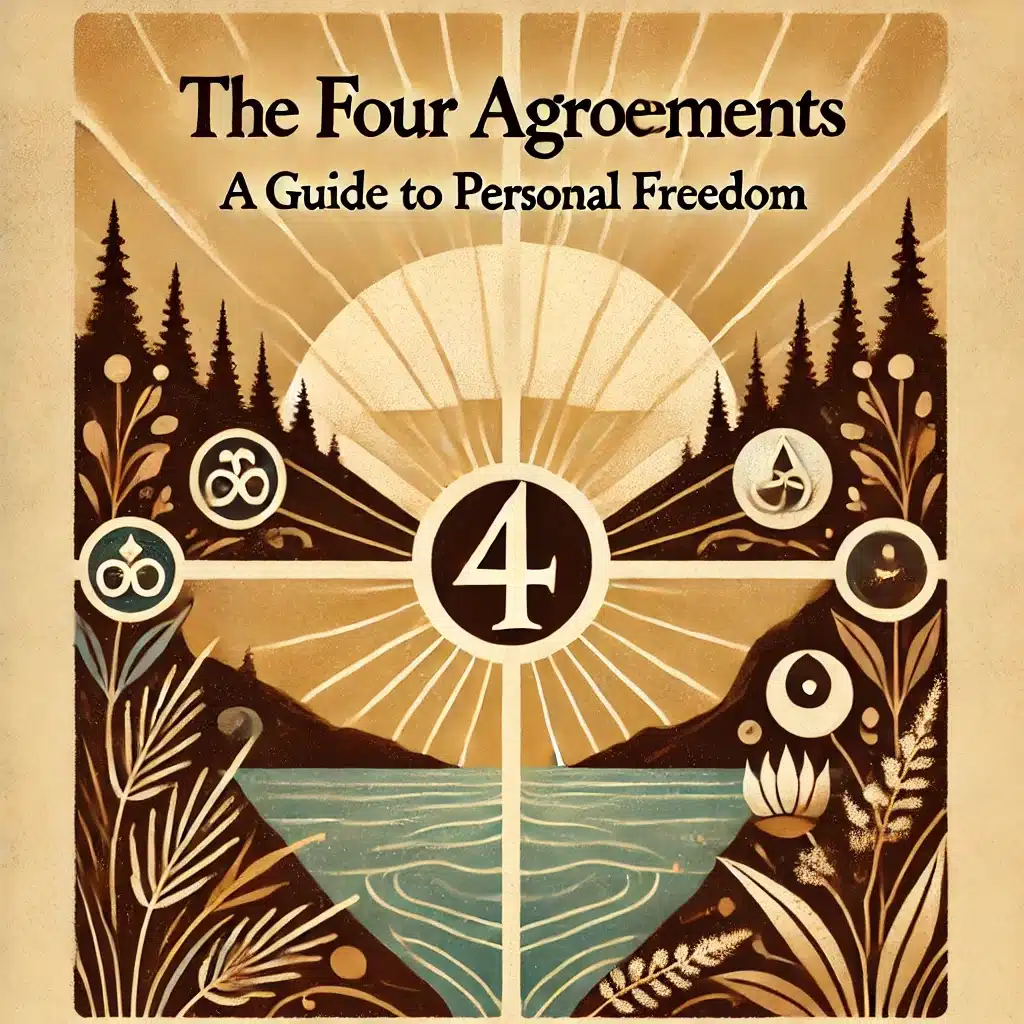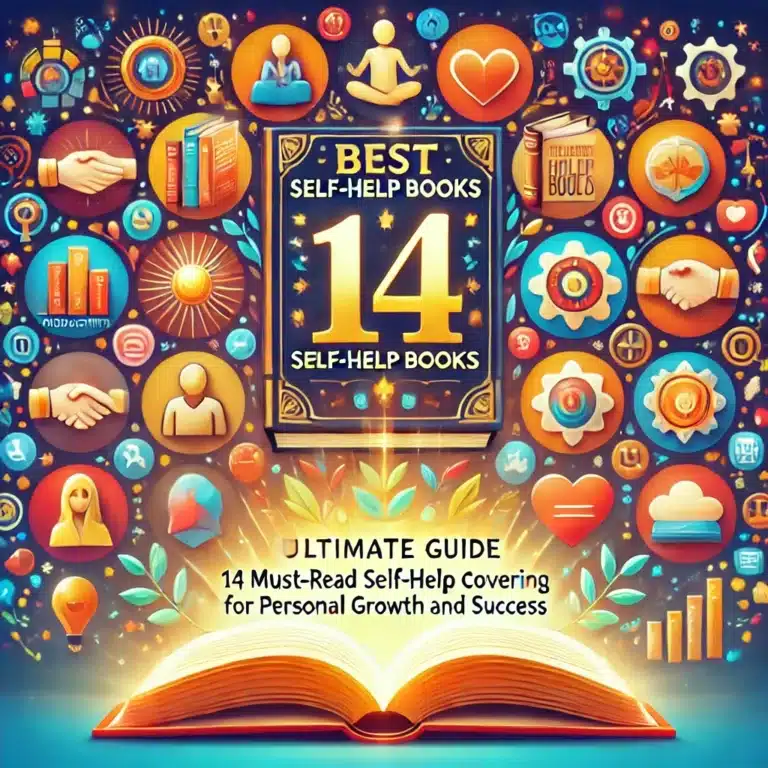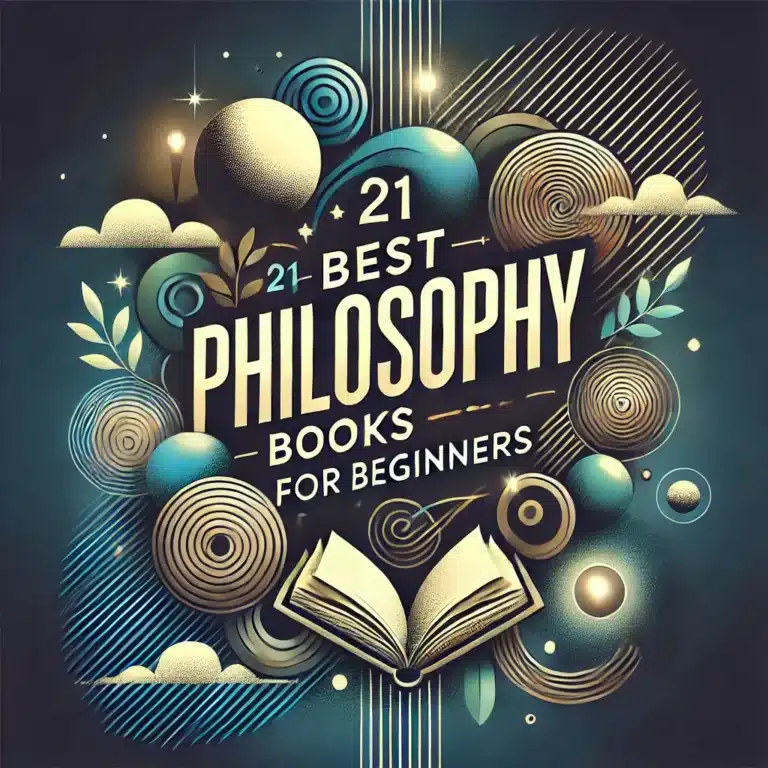The Four Agreements Explained: Path to Personal Freedom and Happiness
The Four Agreements by Don Miguel Ruiz is a spiritual self-help guide that distills ancient Toltec wisdom into a set of four powerful yet simple principles. These agreements aim to break self-limiting beliefs, leading to personal freedom and lasting happiness. Ruiz draws on his Toltec heritage to offer timeless truths that resonate with anyone seeking to improve their emotional well-being, enhance relationships, and cultivate a life of inner peace.

Who Wrote The Four Agreements?
The Four Agreements was written by Don Miguel Ruiz, a Mexican author and spiritual teacher. Born into a family of healers, Ruiz initially pursued a career in medicine as a neurosurgeon. However, after a near-death experience, he turned to the teachings of his ancestors and began studying the ancient wisdom of the Toltec civilization. Through his works, Ruiz shares Toltec teachings that have been passed down for generations, focusing on how individuals can reclaim their personal freedom by challenging the limiting beliefs they have accepted from society.
What is The Four Agreements About?
At the heart of The Four Agreements is the idea that we all live according to numerous “agreements” we have made throughout our lives—agreements that shape how we perceive the world and ourselves. These agreements come from our upbringing, societal norms, education, and personal experiences. Ruiz argues that many of these agreements are based on fear, self-judgment, and limitations, which prevent us from living authentically and fully. Much of our suffering, according to Ruiz, stems from these unconscious agreements.
By introducing new, conscious agreements—The Four Agreements—Ruiz gives readers a blueprint to change their lives for the better. These four agreements provide guidance for how to shift your perspective and reclaim your personal power, leading to a life of happiness and freedom.
What Are The Four Agreements?
The Four Agreements are simple but transformative guidelines for living with integrity, clarity, and emotional resilience. They include:
- Be Impeccable with Your Word
- Don’t Take Anything Personally
- Don’t Make Assumptions
- Always Do Your Best
Each of these agreements addresses a key area of human interaction and thought, offering practical advice on how to live authentically and reduce emotional suffering.
A Deeper Dive Into the Four Agreements Explained
1. Be Impeccable with Your Word

The first agreement is about the power of language. The word “impeccable” means “without sin,” and in this context, it refers to using language in a way that causes no harm to yourself or others. Words are not just communication tools but a force that can either create beauty or destruction in our lives. This agreement encourages us to speak with integrity and truth.
How to Practice It:
- Speak with integrity and truth.
- Avoid speaking ill of others or engaging in gossip.
- Refrain from using language that criticizes or demeans yourself (such as negative self-talk).
- Use words to spread love and positivity, instead of sowing discord.
By being impeccable with your word, you can drastically improve your relationships and self-esteem. When you speak with kindness and truth, you build a foundation of trust and respect both with others and within yourself.
What Makes This Agreement Important?
This agreement emphasizes the immense power of words. Language shapes our reality and influences our thoughts and emotions. When we are impeccable with our word, we ensure that our words are used to create rather than destroy, leading to healthier, more positive relationships and a stronger sense of self-worth.
2. Don’t Take Anything Personally
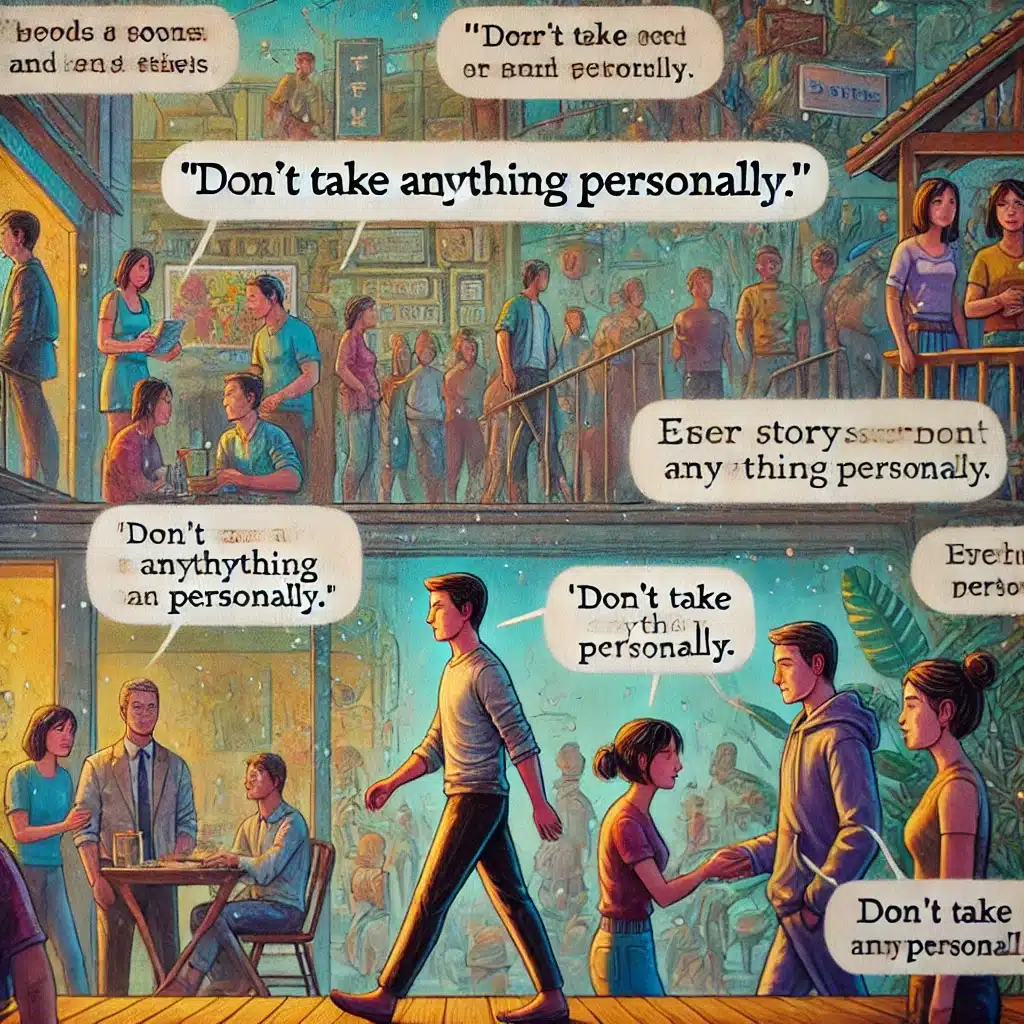
The second agreement liberates us from the emotional chaos that stems from taking the words and actions of others personally. Ruiz emphasizes that what others say and do is a reflection of their own beliefs, experiences, and emotions—it has little or nothing to do with us. Understanding this helps us let go of the emotional burden of internalizing others’ opinions.
How to Practice It:
- Remind yourself that others’ opinions are not necessarily a reflection of your worth.
- Detach from both praise and criticism; neither defines who you are.
- Cultivate emotional resilience by refusing to let external events dictate your inner state.
- Practice self-reflection and stay grounded in your personal truth.
Why This Agreement Matters:
Taking things personally often leads to unnecessary emotional pain, conflict, and self-doubt. When we learn to detach from others’ judgments or actions, we free ourselves from constant worry about how we are perceived by others. This leads to emotional balance and clarity, especially in high-stakes situations like work environments or personal relationships.
3. Don’t Make Assumptions
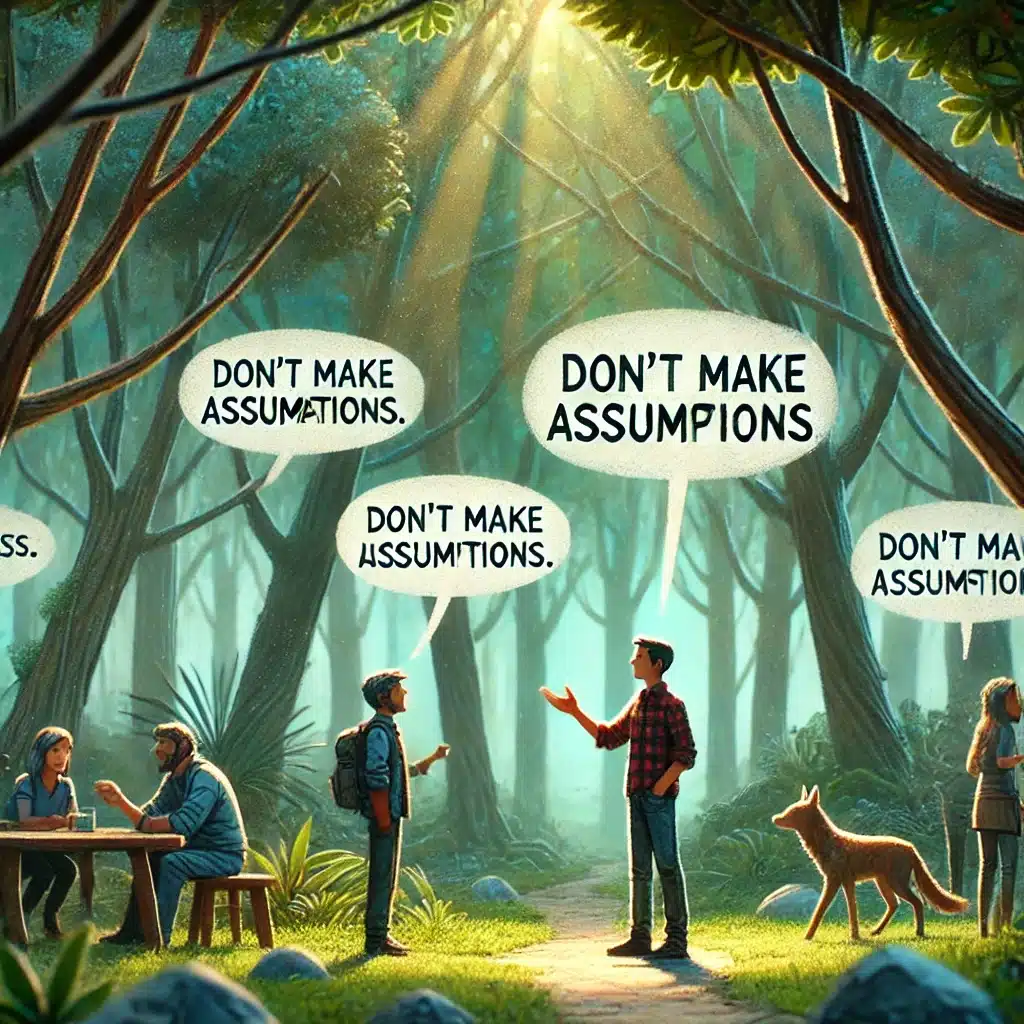
This agreement challenges the human tendency to make assumptions, which often leads to misunderstandings, miscommunication, and conflict. Ruiz highlights how we often assume we know what others are thinking or expect them to know what we want—when, in reality, clear communication is the only way to truly understand each other.
How to Practice It:
- Ask questions instead of making assumptions.
- Clarify intentions and expectations in relationships and conversations.
- When in doubt, communicate openly and honestly.
- Avoid assuming that others see the world the way you do.
Why It’s Important:
Making assumptions is one of the leading causes of misunderstandings and conflict in relationships. Assumptions can create emotional drama and unnecessary suffering. By practicing clear, open communication and asking questions when things are unclear, you prevent confusion and foster more harmonious relationships.
4. Always Do Your Best

The final agreement emphasizes effort over perfection. Ruiz acknowledges that our “best” will vary from moment to moment, depending on our physical and emotional state. However, the key is to always strive to do your best in any given situation without self-judgment or regret.
How to Practice It:
- Acknowledge that “doing your best” will vary from day to day.
- Focus on effort rather than perfection.
- Let go of the need for external validation; doing your best is enough.
- Show yourself compassion when things don’t go as planned.
Why This Agreement Matters:
In a world that often promotes perfectionism, this agreement is a reminder to practice self-compassion. By focusing on effort instead of results, we avoid feelings of guilt, shame, or frustration when things don’t go as expected. Doing your best means giving your all, whatever that looks like in the moment, and letting go of self-criticism.
What is The Four Agreements Summary?
The Four Agreements offers a practical framework for personal freedom and emotional well-being. In summary:
- Be Impeccable with Your Word teaches us the power of language and encourages us to speak with integrity.
- Don’t Take Anything Personally reminds us that other people’s opinions and actions are a reflection of their own reality, not ours.
- Don’t Make Assumptions emphasizes the importance of clear communication and questioning rather than assuming.
- Always Do Your Best encourages us to focus on effort, not perfection, allowing us to live without regret or self-criticism.
Together, these agreements provide a powerful tool for breaking free from limiting beliefs and achieving personal freedom.
Common Themes in The Four Agreements
In addition to the core agreements, several important themes run throughout the book:
1. The “Dream of the Planet”
Ruiz describes the “dream of the planet” as the collective societal beliefs and norms that shape our perception of reality. From birth, we are indoctrinated with ideas about who we should be, what success looks like, and how we should behave. Many of these ideas are fear-based and limit our ability to live freely. Ruiz suggests that the four agreements help us break free from this societal dream and create a personal dream grounded in love and authenticity.
2. Freedom from Fear
A key message in the book is the concept of living without fear. Ruiz argues that fear is at the root of most of our negative emotions and behaviors, such as judgment, jealousy, anger, and self-doubt. By practicing the four agreements, we can liberate ourselves from fear-based thinking and cultivate a life of love, trust, and joy.
3. Personal Responsibility
Ruiz emphasizes personal responsibility throughout the book. He suggests that we are all responsible for the way we perceive and experience the world. While we cannot control others or external circumstances, we can control our own thoughts, words, and actions. The four agreements give us the tools to take ownership of our lives and create a reality that reflects our true selves.
Impact of The Four Agreements on Personal Growth
Many readers find The Four Agreements transformative because it offers practical, actionable steps for improving mental and emotional well-being. These agreements can be applied in everyday situations—whether at work, in relationships, or during moments of self-reflection. The book’s emphasis on self-awareness, personal responsibility, and emotional resilience resonates with individuals seeking a simple yet profound approach to spiritual growth.
Breaking Old Agreements
Ruiz acknowledges that breaking old, limiting agreements is not easy. These agreements are deeply ingrained in our psyche and often feel like unchangeable truths. However, by becoming aware of these unconscious beliefs, we can begin to challenge and replace them with new agreements based on love, truth, and authenticity. This process requires patience, persistence, and self-compassion, but it is ultimately freeing.
Author Bio
Don Miguel Ruiz, a renowned spiritual teacher and author, was born into a family of healers in rural Mexico. Though he initially pursued a career as a neurosurgeon, a near-death experience led him to reevaluate his life and reconnect with the ancient spiritual teachings of the Toltec people. Ruiz’s books, including The Four Agreements, The Mastery of Love, and The Voice of Knowledge, have touched millions of lives around the world with their profound wisdom.
Why You Should Read The Four Agreements
The Four Agreements is a must-read for anyone seeking to improve their emotional well-being, develop healthier relationships, and achieve personal freedom. The book’s simple yet transformative teachings make it accessible to readers from all walks of life, and its timeless wisdom can help anyone break free from limiting beliefs and cultivate inner peace.
Conclusion
The Four Agreements offers a powerful roadmap for living with integrity, love, and personal freedom. Through these four agreements, Ruiz provides practical wisdom that can help readers navigate life’s challenges with grace and clarity. Whether you are seeking to improve your relationships, boost your emotional resilience, or find inner peace, the lessons in The Four Agreements are timeless and transformative.
